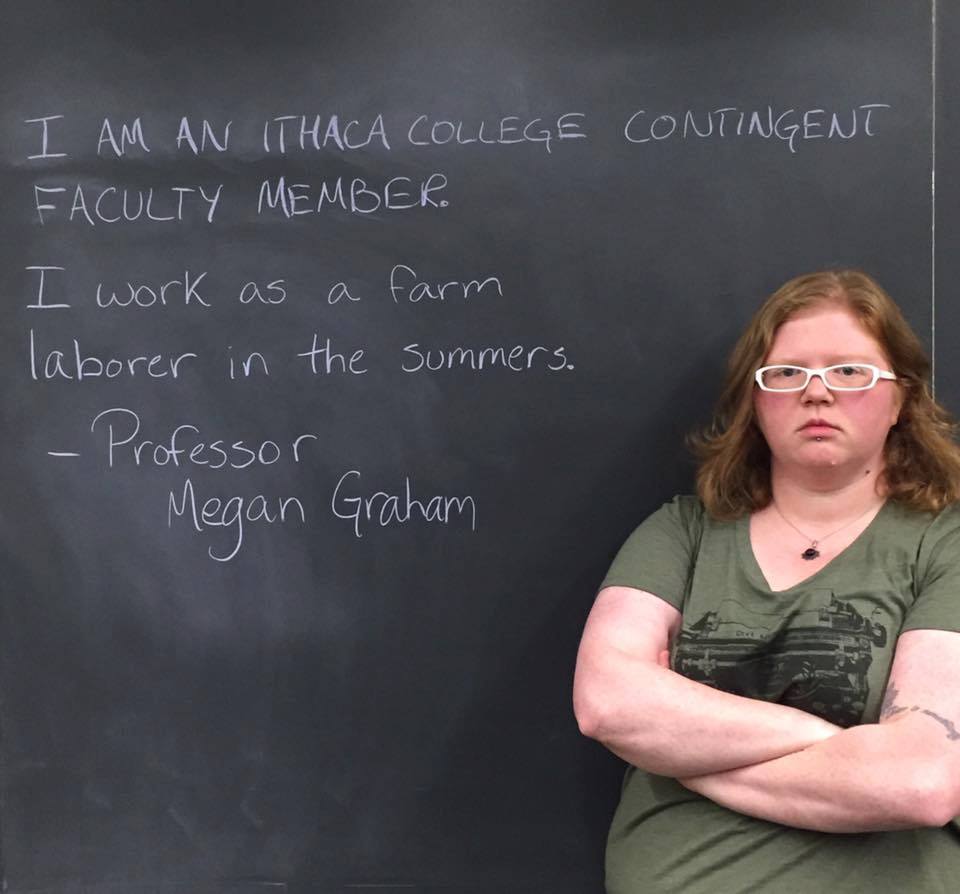After 18 months of bargaining, the faculty unions and the college have been unable to come to an agreement on a contract. According to the college, the part-time faculty union and college’s bargaining committees have come to agreement on 23 separate articles of the contract. Yet, they still have not come to contractual agreements on increased pay and job security for faculty members, which have been key aspects of the ongoing negotiations.
Thirteen departments at the college expressed their support for the unions through open letters. These departments also said they will not replace their contingent faculty members if a strike occurs.
According to data from the college’s human resources webpage, contingent faculty members teach 38.8 percent of all classes at the college. Despite that, representatives from the college’s bargaining team said if a strike occurs, the college “will remain open and will be as flexible as possible to help faculty and students navigate the logistics of the strike while fulfilling our educational requirements and delivering the educational experience our students expect.”

Many faculty members have become frustrated with the bargaining process. Sarah Grunberg, an instructor in the Department of Sociology believes that there has been stalling on the college’s behalf.
“We’ve been working really hard and the vibe that we’ve been getting is almost that the people who we are negotiating with aren’t coming prepared and are taking a really long time to give us information,” Grunberg said.
A point reiterated by Megan Graham, an assistant professor in the Department of Writing.
“There’s been many times that we’ve felt that we’ve had a good discussion that could bring us closer to a compromise and then the next proposal the administration would come out with would indicate the absence of the kind of compromise and it indicated that if they had heard us they hadn’t cared what we had to say,” Graham said.
Both professors have felt the strain of the bargaining process. Graham said that even though she is full time, she is never fully secure in her job and that she lives “month to month.” At this time she has no indication of her status going into the fall semester.
Grunberg gave her own personal story she said that without knowing if you will have a job next year it’s difficult to establish anything permanent.
“I still live at home, in my parents house and that’s because I don’t know if i’m going to be full time next semester,” Grunberg said. “I might be part time again. I can’t afford to live anywhere outside of my house, and that’s a privilege I have that there’s even a house that I have here that I don’t need to pay rent for.”
The tribulations of many part-time faculty members were highlighted in a photo series released on the IC Students for Labor Action Facebook page on Oct. 18, 2016. The series had a number of contingent faculty members stand in front of a whiteboard with a statement highlighting difficulties of their lives as contingent faculty members. Graham wrote that she worked as a farm laborer in the summer.
IC Students for Labor Action is led by Ithaca College senior Taylor Ford, a sociology major. Ford created the photo series, which was highlighted in The Washington Post, and also helped organize the rally to support contingent faculty members on Oct. 19 2016. The rally drew over 300 people in the campus community.

Ford said the group hopes to help contingent faculty solidify their place on campus.
“Our overall goal has always been to help contingent faculty here improve their working conditions, win better compensation, more job security, more respect on campus,” Ford said.
Student support has not gone unnoticed by the professors. Grunberg said the students are what make it worth showing up to her job,
“The students are awesome,” she said. “I mean throughout this whole thing if it wasn’t for the students I don’t think many of us would still be here working under these kinds of conditions. The way that were compensated for a work isn’t from the college with the money that they’re giving us. The compensation comes from the students, just the emotional support, the positive feedback that we get from students, the relationships that we form with students.”

The college’s bargaining team and the unions have two more bargaining sessions set for Feb. 21 and 24. A strike will not occur before those two sessions take place.
Graham said the strike is their final resource.
“A strike is a last resort,” she said. “A strike is what you do when there’s no other way to make the bosses listen to you. We truly believe that these changes will make a better college for students and will make for better educational experience. We think that investing in the classroom is really what has to happen.”







